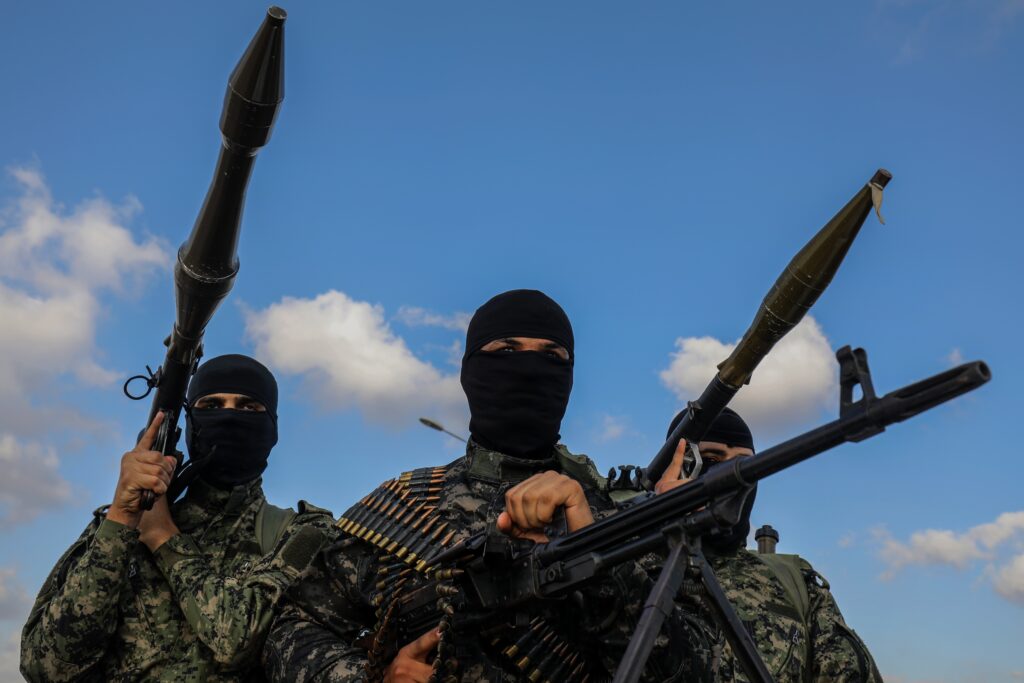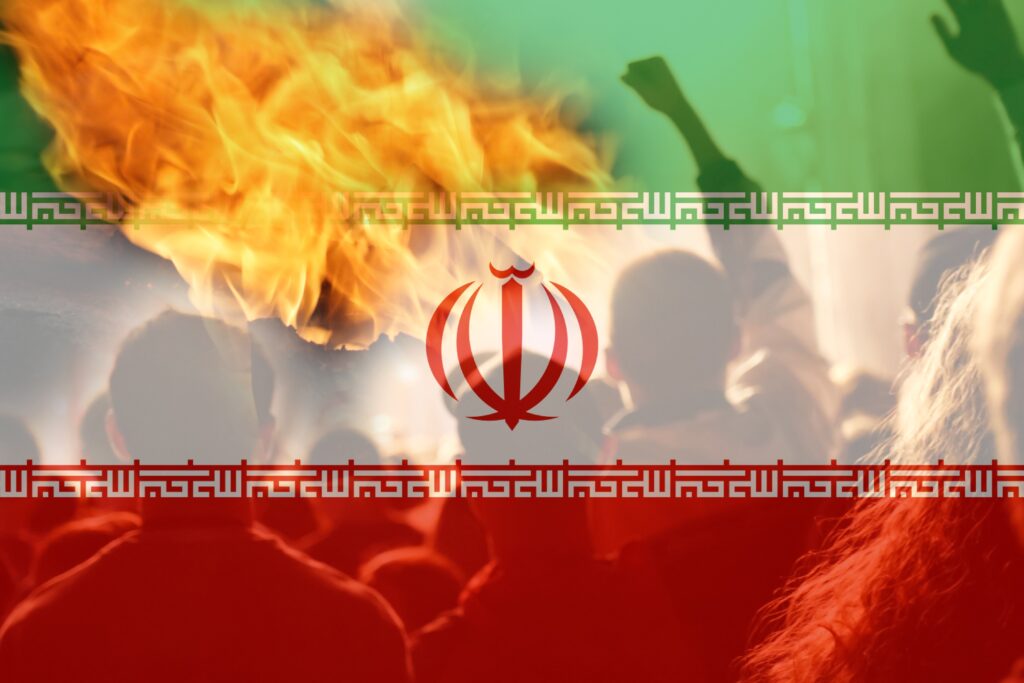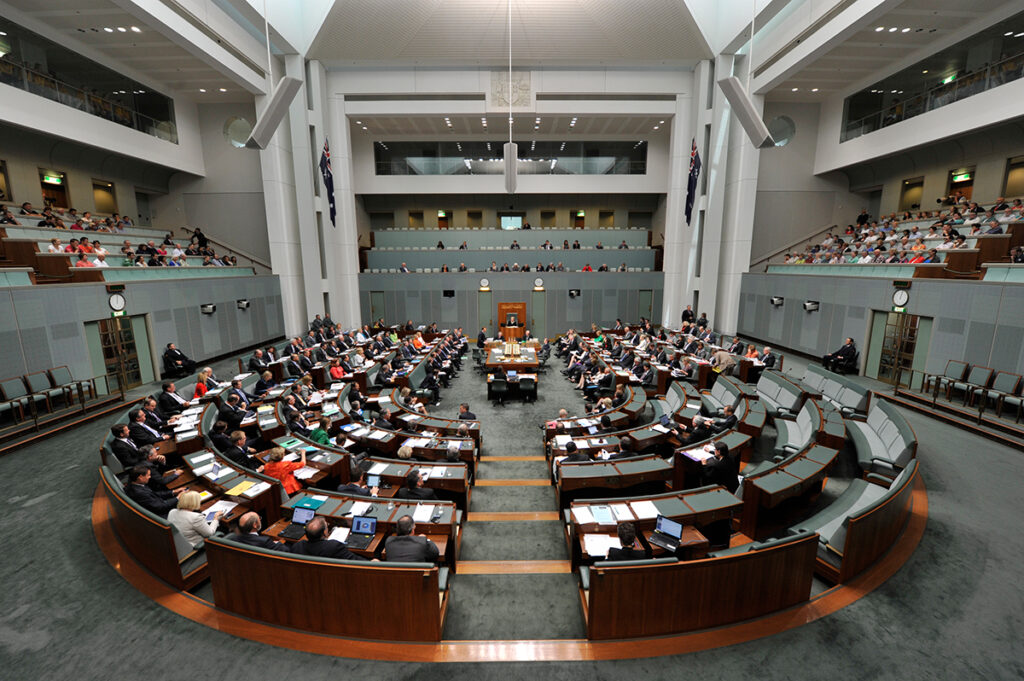UPDATES
Middle East Apartheid/ Negotiating with Iran
March 9, 2012
Update from AIJAC
March 9, 2012
Number 03/12 #03
Today’s Update contains two pieces focussed around the reality behind claims about “Apartheid” often directed at Israel by radical opponents (they organise something called “Israel Apartheid Week” on some college campuses, including some in Australia, every March. A summary of the various organisations behind it is here.)
First up is noted historian and scholar Efraim Karsh who notes that there are some features resembling Apartheid in the Middle East, but these have nothing to do with Israel. He points out examples involving racism, denial of citizenship, slavery, and blatant political oppression of majorities by ruling minority groups in numerous countries across the Middle East. He also notes that Arab efforts to paint Israel as a Nazi-like evil go back to 1945, and that the regimes of the Middle East deserve, but are not getting, the same human rights scrutiny that applies to the rest of the world. For this important piece in full, CLICK HERE. More on the history of the campaign to label Israel with the term “Apartheid” as a political weapon comes from Dr.Gerald Steinberg.
Next up is veteran Israeli columnist Evelyn Gordon who points out that for a supposed apartheid state, Israel positively attracts Arabs and Muslims in large numbers who desperately wish to become citizens and live under its “oppression”. She notes that this point was recently made not by any Israeli, but by a Jordanian-Palestinian named Ramzi Abu Hadid. She also cites figures showing that not only have hundreds of thousands of Palestinians done a great deal to obtain Israeli residency or citizenship, but that tens of thousands of Muslim Sudanese and Eritreans are literally risking their lives to come to Israel. For all the detail, CLICK HERE. On a related but separate note, historian and Israeli Ambassador to the US Michael Oren looks at Israel’s record vis-a-vis its Christian minority, which is pretty good, especially compared to everywhere else in the Mideast – Israeli Christians are actually economically better off on average than Israeli Jews.
Finally, following up on the last Update on Israel, the US and Iran, we offer a primer for negotiating stategy in the renewed P5+1 talks with Iran apparently in the offing. Washington Institute scholar Michael Singh argues that while some facesavers are possible to reach an agreement, it would be a dangerous miscalculation to draw back from previous “red lines” about what an agreement must entail to end sanctions and international concern about Iran’s nuclear program. In particular, he argues, it must not be conceded, as some have argued it should, that Iran “retains weapons-applicable components of its nuclear program, such as its enrichment work, as long as it refrains from actually building a bomb” – which would allow Iran to have a nuclear weapons capability, many of the benefits of a nuclear status, and the likely ability to secretly make nuclear weapons when desired. For his argument in full, CLICK HERE. Another Washington Institute expert, Mehdi Khaliji, looks at how the Iranian leadership is likely to view the negotiations.
Readers may also be interested in:
- Reports on Iran’s Parchin military site, which Iran has agreed to open to inspection after previously refusing, but is reporting to be “cleaning up” ahead of the visit amidst claims from diplomats the site appears to have been used to test neutron activation triggers, a key element of nuclear weapons, and a smoking gun if true.
- American Jewish Committee head David Harris has a debunking of the rather trite and mindlessly anti-Israel recent work by British academic Avi Shlaim, who turned up recently in Australia in the local version of the Spectator.
- Meanwhile, former British MP Lorna Fitzsimmons takes on the all too common tendency to misrepresent and distort what Israeli PM Netanyahu has done and said. And Israeli political scientist Ira Sharkansky discusses myths and realities about Israeli foreign minister Avigdor Lieberman.
- A Hamas official was quoted yesterday as saying Hamas would not attack Israel if Israel attacked Iran. Now, more senior Hamas figures are saying the opposite. Jonathan Spyer has more good analysis of the split within Hamas.
- A great piece on the reality of the “drone wars” in Pakistan’s far northeast.
- Two experts discuss what needs to be done to stabilise Libya.
- Some examples from the many stories and comments now appearing at AIJAC’s daily “Fresh AIR” blog:
- An Aussie terror twist in the latest arrest in India over the Israeli Embassy bombing.
- A post on some of the realities behind the sudden internet campaign against Ugandan war criminal Joseph Kony,
- A post on Israel’s diplomatic “ace in the hole” in Asia.
- A follow up, with more on the implications of the Iranian parliamentary election.
- Allon Lee on the Sydney Peace Foundation’s Stuart Rees’ attempt to promote “Peace through Falsehood.”
-
Colin Rubenstein on the problems with Palestinian Unity.
The Middle East’s real apartheid
By EFRAIM KARSH
Jerusalem Post, 05/03/2012
In light of Israel Apartheid Week, which hit cities and campuses throughout the world recently, supporters of the Jewish state find it difficult to agree on the best response to this hate fest. Some suggest emphasizing Israel’s peacemaking efforts, others propose rebranding the country by highlighting its numerous achievements and success stories. Still others advocate reminding the world of “what Zionism is – a movement of Jewish national liberation – and what it isn’t – racist.” Each of these approaches has its merits yet none will do the trick.
Peace seeking and/or prosperity are no proof of domestic benevolence and equality. The most brutal regimes have peacefully coexisted with their neighbors while repressing their own populations; the most prosperous societies have discriminated against vulnerable minorities. South Africa was hardly impoverished and technologically backward; the United States, probably the most successful and affluent nation in recent times was largely segregated not that long ago.
Nor for that matter is the apartheid libel driven by forgetfulness of Zionism’s true nature. It is driven by rejection of Israel’s very existence. No sooner had the dust settled on the Nazi extermination camps than the Arabs and their western champions equated the Jewish victims with their tormentors.
“To the Arabs, indeed Zionism seems as hideous as anything the Nazis conceived in the way of racial expansion at the expense of others,” read a 1945 pamphlet by the Arab League, the representative body of all Arab states. A pamphlet published by the PLO shortly after its creation in 1964 stated: “The Zionist concept of the ‘final solution’ to the ‘Arab problem’ in Palestine, and the Nazi concept of the ‘final solution’ to the ‘Jewish problem’ in Germany, consisted essentially of the same basic ingredient: the elimination of the unwanted human element in question.”
Indeed, it was the Palestinian terror organization that invented the apartheid canard in the mid-1960s, years before Israel’s occupation of the West Bank and Gaza.
This charge, of course, is not only completely false but the inverse of the truth. If apartheid is indeed a crime against humanity, Israel actually is the only apartheid-free state in the Middle East – a state whose Arab population enjoys full equality before the law and more prerogatives than most ethnic minorities in the free world, from the designation of Arabic as an official language to the recognition of non-Jewish religious holidays as legal days of rest.
By contrast, apartheid has been an integral part of the Middle East for over a millennium, and its Arab and Muslim nations continue to legally, politically and socially enforce this discriminatory practice against their hapless minorities.
Why then should an innocent party be under constant pressure to “come clean” while the real culprits are not only left unscathed but also given a worldwide platform to blame others for their own crimes? Rather than engage in incessant apologetics and protestations of innocence, something Jews have been doing for far too long, Israel should adopt a proactive strategy, call a spade a spade and target the real perpetrators of Middle East apartheid: the region’s Arab and Muslim nations.
Arab/Muslim apartheid comes in many forms, and some victims have been subjected to more than one.
• Religious intolerance:
Muslims historically viewed themselves as distinct from, and superior to, all others living under Muslim rule, known as “dhimmis.” They have been loath to give up this privileged status in modern times. Christians, Jews and Baha’is remain second-class citizens throughout the Arab/Muslim world, and even non-ruling Muslim factions have been oppressed by their dominant co-religionists (e.g. Shi’ites in Saudi Arabia, Sunnis in Syria).
• Ethnic inequality:
This historic legacy of intolerance extends well beyond the religious sphere. As longtime imperial masters, Arabs, Turks and Iranians continue to treat long-converted populations, notably Kurds and Berbers, that retained their language, culture and social customs, as inferior.
• Racism:
The Middle East has become the foremost purveyor of anti-Semitic incitement in the world with the medieval blood libel widely circulated alongside a string of modern canards (notably The Protocols of the Elders of Zion) depicting Jews as the source of all evil.
Likewise, Africans of sub-Saharan descent are held in deep contempt, a vestige of the region’s historic role as epicenter of the international slave trade.
• Gender discrimination:
Legal and social discrimination against women is pervasive throughout the Arab-Islamic world, accounting for rampant violence (for example domestic violence or spousal rape are not criminalized) and scores of executions every year, both legal and extra-judicial (i.e. honor killings). Discrimination against homosexuals is even worse.
• Denial of citizenship:
The withholding of citizenship and attendant rights from a large segment of the native-born population is common. Palestinian communities in the Arab states offer the starkest example of this discrimination (in Lebanon, for example, they cannot own property, be employed in many professions, move freely, etc.). The Bidun (stateless peoples) in the Gulf states, and hundreds of thousands of Kurds in Syria have been subjected to similar discrimination.
• Labor inequality:
Mistreatment of foreign workers (especially household servants), ranging from sexual abuse to virtual imprisonment and outright murder, is widely tolerated throughout the Middle East, especially in oil-exporting countries that host large expatriate labor forces.
• Slavery:
The Arabic-speaking countries remain the world’s foremost refuge of slavery, from child and sex trafficking in Saudi Arabia and the Gulf states to actual chattel slavery in Sudan and Mauritania. Indeed, Islamists throughout the Middle East have had no qualms advocating the legalization of slavery.
• Political Oppression:
Many Middle Eastern regimes are little more than elaborate repressive systems aimed at perpetuating apartheid-style domination by a small minority: Alawites in Syria; Tikritis in Saddam’s Iraq; the Saudi royal family; the Hashemite dynasty in Jordan.
Possibly the world’s most arresting anachronism, these endemic abuses have until now escaped scrutiny and condemnation. Western governments have been loath to antagonize their local authoritarian allies, while the educated classes have absolved Middle Easterners of responsibility for their actions in the patronizing tradition of the “white man’s burden,” dismissing regional players as half-witted creatures, too dim to be accountable for their own fate.
It is time to denounce these discriminatory practices and force Arab/Muslim regimes to abide by universally accepted principles of decency and accountability. This will not only expose the hollowness of the Israel delegitimization campaign but will also help promote regional peace and stability.
History has shown that gross and systemic discrimination is a threat not just to the oppressed minorities, but also to the political health of the societies that oppress them. Only when Arab and Muslim societies treat the “other” as equal will the Middle East, and the rest of the Islamic world, be able to transcend its malaise and look forward to a real political and social spring.
The writer is research professor of Middle East and Mediterranean Studies at King’s College London, director of the Middle East Forum (Philadelphia) and author, most recently, of Palestine Betrayed.
Back to Top
————————————————————————
Why Do Arabs and Muslims Keep Trying to Move to the “Apartheid State”?
Evelyn Gordon
Commentary “Contentions”, 03.07.2012
As Israel Apartheid Week circumnavigates the globe this month, a Jordan-based Palestinian journalist has offered an eloquent rebuttal that every Israel supporter should memorize and quote. If Israel is really an “apartheid state,” asks Ramzi Abu Hadid, “Why has it become the dream of many Arab Christians and Muslims to emigrate to the ‘apartheid state’? Is it possible that all these people are uninformed? Or do they really know the truth about Israel, the only democracy in the Middle East?”
Specifically, he noted, “thousands of the Palestinians from the West Bank and Gaza Strip … try to infiltrate into Israel every morning in search of work and a better life,” while “tens of thousands of Arabs and Muslims have put their lives at risk by crossing the border into Israel from Egypt, where border guards often open fire at women and children.” In addition, “many Christian families from Bethlehem and even the Gaza Strip have moved to live in Israel because they feel safer in the ‘apartheid state’ than they do among their Muslim ‘brothers.’”
Abu Hadid doesn’t provide hard numbers, but the data amply prove his claims. During the first 11 months of last year alone, for instance, 13,851 illegal migrants entered Israel from Sinai; the biggest contingents were Muslim refugees from Sudan and Eritrea. And the risk of being shot by Egyptian guards is just one of the dangers they braved to reach “the apartheid state”: Migrants also face horrific abuse from the Sinai Bedouin who smuggle them over the border.
As for Palestinians, those who “try to infiltrate into Israel every morning” are only part of the story. To that, add the tens of thousands of Palestinians who have moved to Jerusalem in recent years rather than remain on the Palestinian side of Israel’s West Bank security barrier. Then add the hundreds of thousands of Palestinians who have sought and obtained Israeli citizenship by marrying Israeli Arabs.
Altogether, some 350,000 Palestinians have acquired citizenship through “family reunification” since Israel’s founding in 1948, according to veteran journalist Nadav Shragai. But the numbers surged following the 1993 Oslo Accord – i.e., precisely when Palestinian statehood for the first time looked like a real possibility: In 1994-2002, fully 137,000 Palestinians acquired Israeli citizenship through marriage. The numbers have since dropped drastically, but that isn’t because Palestinian demand has fallen: It’s because in 2003, Israel enacted new restrictions on family reunification in response to the second intifada.
Abu Hadid’s argument also has a flip side, as he himself noted: Unlike Israel, many of its Arab neighbors do engage in legalized discrimination against Palestinians. In Jordan, for instance, “the government has been trying to strip thousands of us Palestinians of our Jordanian citizenship – a move Israel never made against its Christians and Muslims.” He might also have mentioned a long list of other discriminatory practices: Until recently, for instance, Jordan barred Palestinians from Gaza from owning property or working in any job except manual labor and farming, while Lebanon also bars Palestinians from owning property or working in a long list of professions.
In short, the simplest response to the “apartheid” charge is the one Americans once used to counter Soviet propaganda: Just look at the direction of the population flow. It turns out Arabs and Muslims are voting with their feet in favor of the “apartheid state.”
Back to Top
————————————————————————
AVOIDING A BAD NUCLEAR DEAL WITH IRAN
By Michael Singh
Foreign Policy, March 7, 2012
The P5+1 — which includes the U.S., U.K., France, Germany, China, and Russia — has just accepted an Iranian offer of further nuclear talks. These talks will come at a crucial time. The West has dramatically ratcheted up pressure on the Iranian regime through new sanctions targeting Iran’s oil exports and its central bank, and President Obama in remarks on Sunday took a to ugher line than he has in the past by ruling out the notion of “containing” a nuclear-armed Iran. The next round of negotiations will therefore be an important test of the notion that pressure can force Iran to reconsider its nuclear ambitions, as well as a test of U.S. resolve in the face of Iranian obstinacy.
Sanctions on Iran have undoubtedly had an impact, driving down the value of Iran’s currency, driving up inflation, and making it difficult for Iranians to sell oil or even buy food. But making life difficult for Iranians is not the objective of U.S. policy; indeed, for many years it was American policy to avoid causing widespread hardship in Iran. The U.S. goal is to halt Iran’s nuclear activities, and that has not yet been accomplished — Iran is spinning more centrifuges, and manufacturing more and higher-grade uranium than ever before.
If the upcoming round of talks, like previous iterations, fails to yield progress, the U.S. will be left with little recourse other than additional pressure, while Israel will have additional incentive to carry out a strike. But another alternative exists, which President Obama has yet to rule out — that the U.S. will draw back our own redlines and accept a nuclear weapons-capable, if not nuclear-armed, Iran. This would be a dangerous miscalculation.
While the official U.S. and U.N. Security Council stance has long been that Iran must halt uranium enrichment as part of any serious talks, Washington has demonstrated tactical flexibility in an effort to allow Iran to “save face” and get negotiations started. From 2006-2008, the U.S. and its allies offered Tehran the so-called “freeze for freeze” deal, whereby Iran would merely temporarily freeze new enrichment and the West new sanctions, as a brief prelude to the full suspension of both uranium enrichment and sanctions implementation called for by the U.N. Security Council.
Similarly, in October 2009, the U.S. and its partners offered to swap Iran’s low-enriched uranium (LEU) for the fuel plates Iran required to power its Tehran Research Reactor (TRR), with which it manufactured medical isotopes. Washington asserted that the arrangement was intended as a confidence-building measure, but did not negate the U.N. demand that Iran suspend enrichment.
Recently, however, there have been signs of a U.S. shift. In his speech on Sunday, the President assiduously referred only to preventing Iran from developing nuclear weapons, not a nuclear weapons capability. Likewise, Secretary of Defense Leon Panetta has asserted that the U.S. redline is that Iran not develop a nuclear weapon. This leaves open the possibility of Washington acquiescing to a “latent” nuclear weapons capability, whereby Iran retains weapons-applicable components of its nuclear program, such as its enrichment work, as long as it refrains from actually building a bomb.
Many analysts have urged President Obama to consider one of the various proposals that would allow Iran to continue enriching uranium, though perhaps under somewhat stronger supervision. One of these is the so-called Russian proposal, under which Iran would address the IAEA’s questions in phases and the West would reciprocally ease sanctions. Another was the vague offer by Iranian President Ahmadinejad during his September visit to New York to cease Iran’s production of highly-enriched uranium.
The allure of such a deal from the U.S. perspective is clear. Washington would cite the deal as a diplomatic triumph that averted war and limited Iran’s nuclear capacity. Likewise, the Iranian regime, having compelled the West to recognize its nuclear status and retained its enrichment program, would tout the pact as a victory.
In reality, allowing Iran to retain its uranium enrichment program would carry serious risks for the U.S. and our allies. The Institute for Science and International Security warns that “without [a halt to enrichment], Iran’s enrichment program would continue to grow in capacity and increase Iran’s ability to quickly, and perhaps secretly, make highly enriched uranium (HEU) for nuclear weapons in its centrifuge plants.”
In other words, the Iranian regime would have its cake and eat it, too. The current sanctions drive would fizzle and existing sanctions would be eased or lifted. A military strike would effectively be taken off the table, including by Israel, which would likely feel constrained from attacking nuclear facilities blessed by the U.S. The Iranian regime, having succeeded in defying not only the U.S. but the entire Security Council, would be strengthened domestically. But the threat of Iranian nuclear weapons would not be removed; instead, Iran could perfect its nuclear expertise, stopping just one turn of the screw away from producing a nuclear weapon, or even building one clandestinely.
As our confrontation with Iran enters a new, more dangerous phase, the U.S. must avoid the temptation of redefining our r edlines and objectives in a manner that fails to satisfy our national security requirements. To avert war and defuse tensions through clever tactics and smart policies is admirable; to do so by abdicating our vital interests is not.
Michael Singh is managing director of The Washington Institute.
Tags: Anti-Zionism





